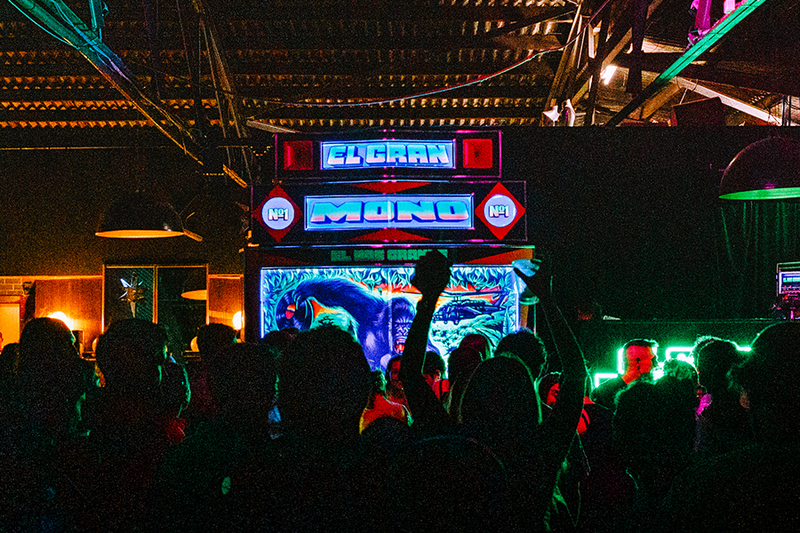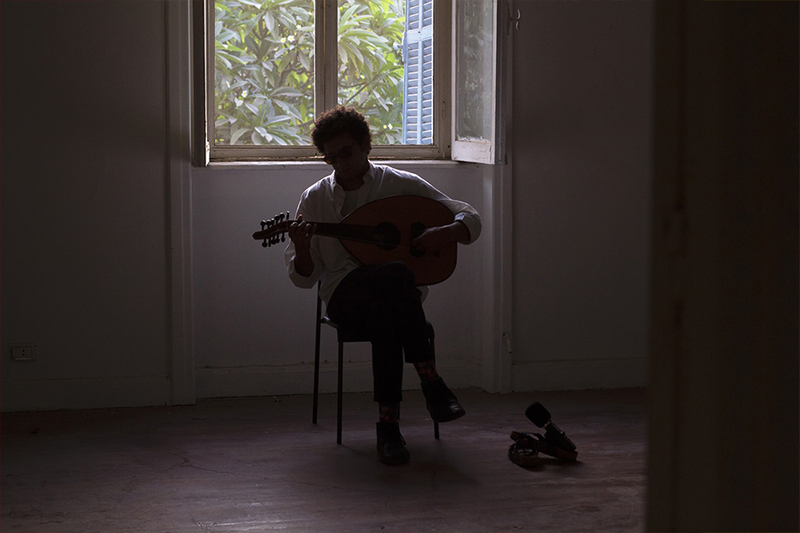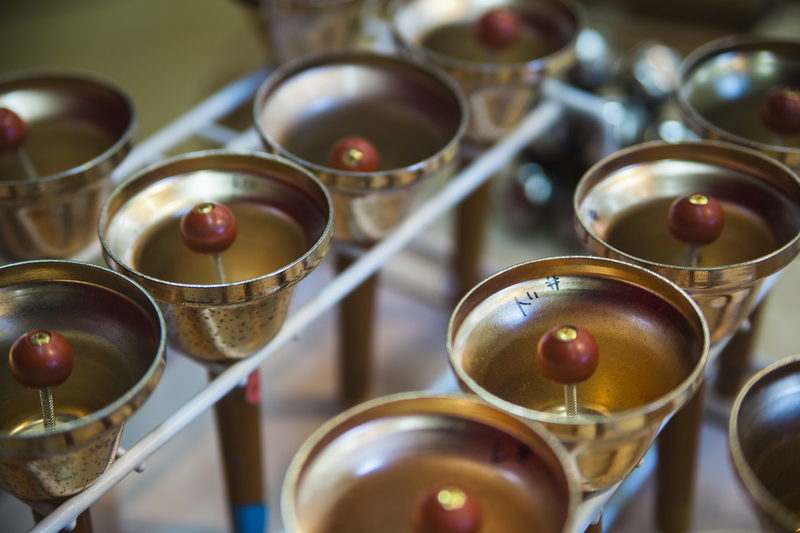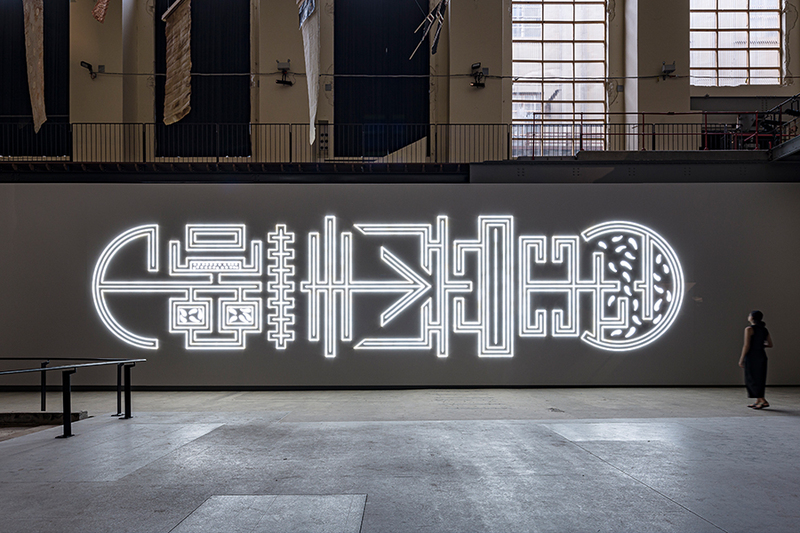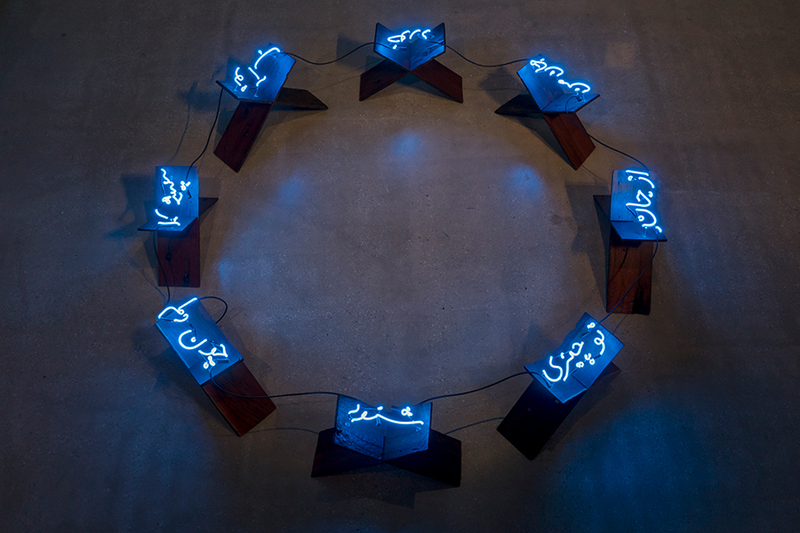
From July 10 to July 24, (EE) Films are thrilled to screen one of the videos from the “Her Gaze: Moving Image from Central Asia” program, devoted to decolonial approaches to feminism and questioning it from non-Western perspectives. This is the work of Qazaq artist Medina Bazargali about aitys—a traditional song competition between two poets to voice people's demands to authorities. The screening is accompanied by comments from the artist about her work.
The work refers to aitys, a song competition between two poets known as akyns. It has a long tradition in Qazaq and Kyrgyz histories. Spoken word is crucial for both steppe cultures, as they mainly produce and distribute knowledge orally, often without creating written archives. Historically, Akyns also used spoken word to fight tyranny, to speak directly to their administrative hierarchy, i.e. khans, terens, bis, and beks. No issue was ignored by the aityskers, or “debaters.” The situation drastically changed in Soviet times when Qazaq steppe nomads were forced to adopt a settled way of life and thus had to change their traditions. In the 21st century, aitys remains depoliticized and is used by political monopolists as a propagandist trope to solidify an illusion of free speech.
In their video, Medina tries to restore political meaning to aitys. Experts in improvisation combine poetic flow with dombra sounds to create an aitys battle about different ways of Qazaqstan’s decolonization. The first akyn is fighting the colonial regime to create his own hierarchy and to reproduce patriarchal power, control, and oppression. The second one reflects a feminist point of view, freestyling about mutual aid, sustainable communities, and solidarity networks.
Medina Bazargali
When I was a child, my grandfather from my father's side used to listen to aitys on TV and explained to me the punchlines and jokes. My grandmother from my mother's side is a PhD researcher of Qazaq non-material heritage. She did research about Qazaq instrumental and poetical art her whole life, standing up and fighting for Qazaq culture in soviet academia. It is her life’s work and it really inspired me while I was young.
I grew up with an idea that aitys is our people’s living artistic movement that always had resistance potential and a strong position against injustice. Despite the fact that aitys that are being represented by the government-funded TV-channels like Khabar usually do not allow any critique or political agenda, many independent young aityskers, like “Aitys Masa” on YouTube, create really interesting and deep poetical debates about the contemporary political contexts of Qazaqstan. These include Qañtar 2022Qañtar 2022A series of mass protests and civil unrest that began in Kazakhstan on January 2nd, 2022 after a sudden sharp increase in liquefied petroleum gas prices following the lifting of a government-enforced price cap on January 1st., geopolitical crisis of being locked between China and Russia, “Jaña (New) Qazaqstan” vs “Eski (Old) Qazaqstan,” femicide, colonial violence of past and present, the humanitarian catastrophe in East Turkestan, and so on. I really respect their work. I was also inspired by the research by Asel Mukasheva published in autumn 2023 about the political dimensions of aitys in the 21st century.
When I had the idea to make this video I went to the Aitys faculty at Zhurgenov Academy of Arts in Almaty, found the dean and told him about it. He supported me and proposed the idea to his students, leaving my contact info with them. Those who were interested contacted me and we started working together. We had conversations about the history of aitys, the political and social situation in Qazaqstan, language problems, and patriarchy. We meaningfully texted and exchanged audio-messages for about a week, then we met for a shooting. My friends Ayaulym Lenhan and Damir Mukhametov helped with this.
I don’t think of myself as an artist in this project. I'm more like a curator/portal/documentalist. I never told the performers what and how to perform. This was their full improvisation.
The screening is co-curated by Dilda Ramazan, DAVRA Collective, and League of Tenders, as a part of Vleeshal's Nomadic Program 2024–2025, entitled “Repetition is a Form of Changing.” Vleeshal is a center for contemporary art in Middelburg, the Netherlands, recognized for versatile, vibrant, and vital projects presented both within the walls of its unique Gothic exhibition space and beyond.
